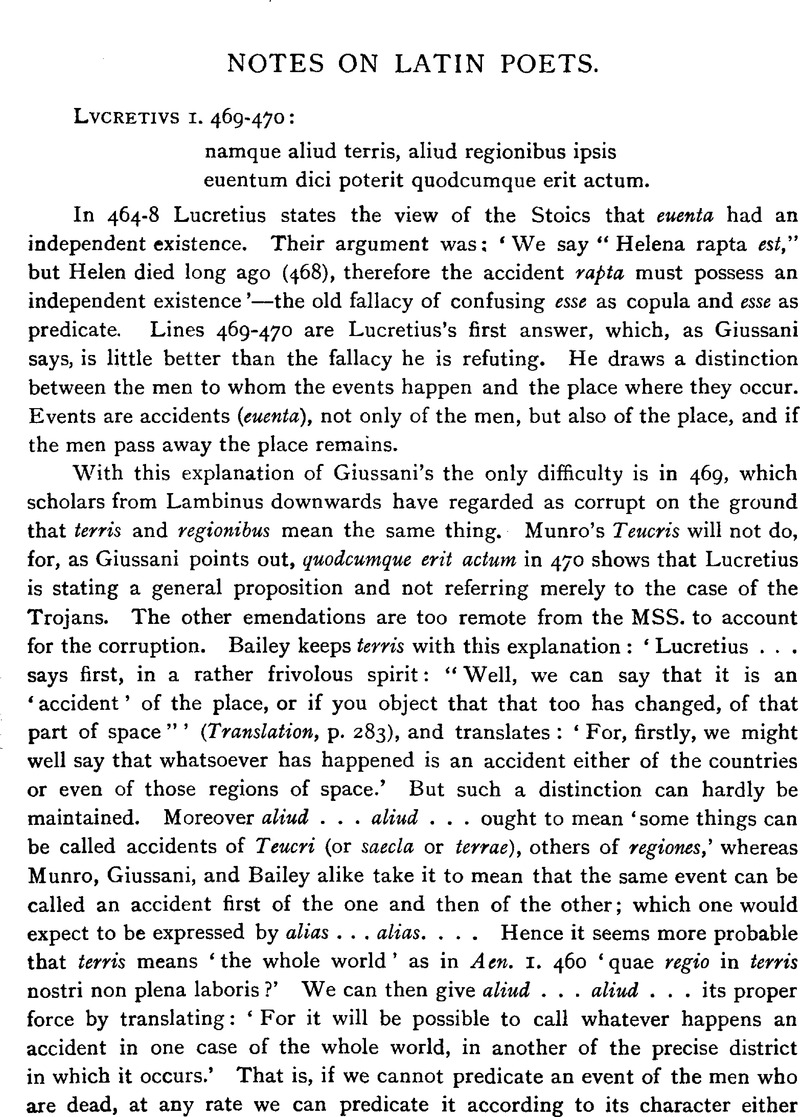Article contents
Notes on Latin Poets
Published online by Cambridge University Press: 11 February 2009
Abstract

- Type
- Research Article
- Information
- Copyright
- Copyright © The Classical Association 1917
References
page 139 note 1 L. Müller and Gow attribute this explanation to Bentley, but Bentley's parallels from Terence and Ovid show that in his Horace at least he took qui to be a relative. In his notes on Terence, ll. cc., he does not refer to Horace.
page 139 note 2 That Pliny is here speaking of apples is proved by § 52 ‘cunctis uero quae fuere a sole partes rubent.’ Otherwise the proverbial sweetness of Melimela (cf. Mart. 1. 43. 4 ‘dulcibus aut certant quae melimela fauis’; 7. 25. 7 ‘infantimelimela dato fatuasque mariscas,’ 13.24) would lead one to suppose it was some sweet fruit like the apricot. But an apricot is not coloured only on the side towards the sun. It cannot be a fig or pear or plum, since these are discussed by Pliny in separate sections.
- 1
- Cited by


